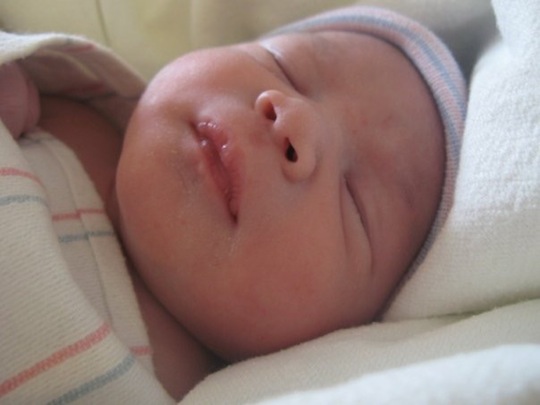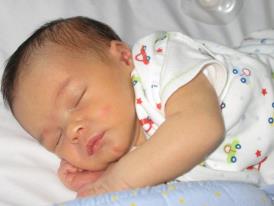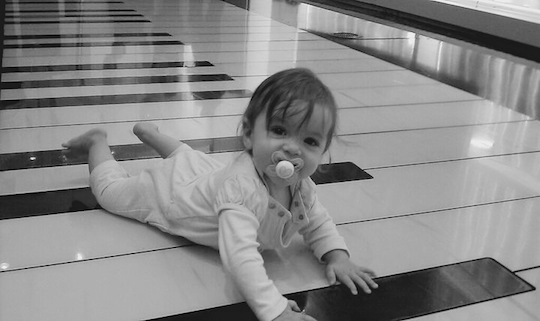This is part of a sponsored collaboration with AstraZeneca and DiMe Media. However, all opinions expressed are my own.
Long before I became a mother, I learned of the dangers of RSV. As an NICU nurse, we were educated extensively about the seasonal virus, which can pose a particular danger to infants born prematurely. RSV is the leading cause of hospitalization in babies during their first year of life, and while symptoms often resemble the common cold or flu, this virus can be deadly.

My daughter was born at 37 weeks of age, and while she was not technically considered premature, the fact that she was born in the winter and via C-section meant that I was incredibly vigilant about keeping her away from crowds and anyone who was sick. I’m thankful that I already had knowledge of the virus in the event that she became ill.

If you are a parent of a baby under the age of 2, I highly recommend spending some time learning about RSV in order to protect him/her from this potentially life-threatening disease.
What is RSV?
RSV, also known as Respiratory Syncytial Virus, is a common virus affecting nearly all infants by the age of 2. It is highly contagious and can infect the lungs and breathing passages. In babies who were born prematurely or have heart/lung conditions, RSV can cause pneumonia and/or bronchiolitis.
What are the symptoms of RSV?
If your infant/child exhibits any of the following symptoms, I recommend getting in contact with your physician immediately
- Coughing/wheezing that does not stop
- Fast/troubled breathing
- Gasping for breath
- Spread-out nostrils and/or a caved-in chest when trying to breathe
- Bluish color around the mouth or fingernails
- Fever (considered very significant if over 100.4 in babies under 3 months of age)
Is my baby at risk for RSV?
As common as the virus is, there are certain populations that are at an increased risk of contracting RSV. RSV Risk Assessment, visit RSVProtection.com.
- Babies born prematurely (earlier than 35 weeks gestation) are twice as likely to be admitted for RSV-related symptoms when compared to babies born at full term.
- Babies born with certain types of congenital heart disease
- Babies who have been diagnosed with chronic lung disease of prematurity
How can I prevent RSV?
At present, there is no treatment (apart from supportive care) for RSV, making prevention critical.
- Wash hands frequently and request anyone who holds your baby to do the same
- Keep toys, clothes, sheets and blankets clean
- Avoid crowds and anyone (including children) who may be sick during RSV season (November-March)
- Speak with your child’s physician about risk and whether or not there are additional things that can be done to protect a high-risk baby from contracting RSV
- Do not allow anyone to smoke in your home or around your baby
- Monitor RSV trends based on your location by visiting RSVProtection.com

- Discover Luxury at Sonesta Irvine: Your Ideal Staycation - August 8, 2024
- CHOC Walk Returns to the Disneyland Resort – Special Events and Ways to Support - June 28, 2023
- Beastly Ball Returns to the Los Angeles Zoo - May 8, 2023


Leave a Reply